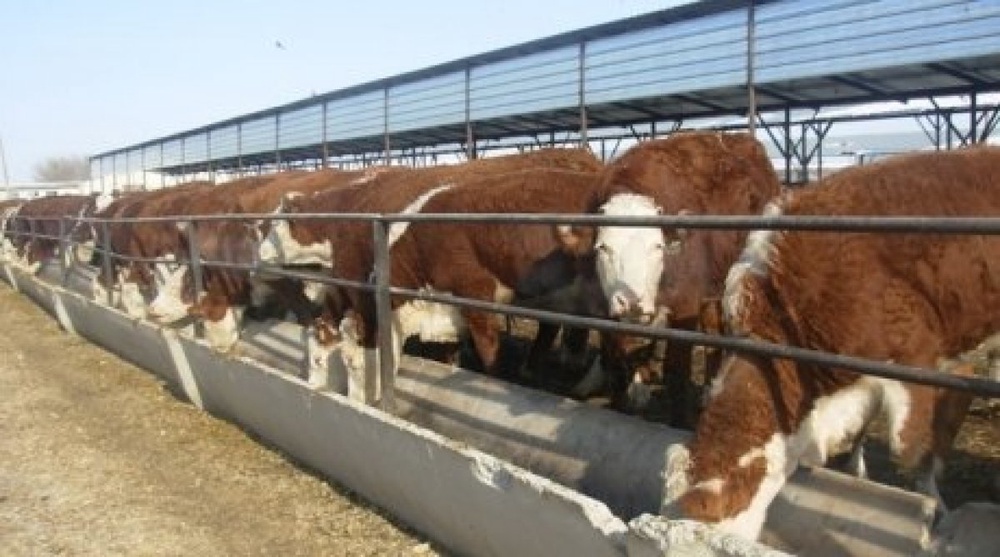
Kazakhstan farmers will be able to learn the breed of cattle prenatally, Tengrinews.kz reports, citing Rashit Uskenov, general director of the National and Innovation Center of Stock Breeding and Veterinary as saying at the weekly briefing at the Ministry of Agriculture. “Genome breeding means finding a statistical and mathematical correlation between the animal’s genotype and phenotype to define its reproduction efficiency, i.e. breeding value, at an early age. The Ministry of Agriculture has put this development on its agenda for 2012-2014. This involves creation of a data base of 10,000 reference population of golshtinized cattle,” Rashit Uskenov said. According to Uskenov, the experts will be able to define if a calf has a breeding value prenatally. They will do a blood test and check the animal’s DNA. The tests will show the breeding value of the animal and define its fate. If this data will meet the breeding cattle requirements, then the animal will be left at the farm for further use and if the DNA shows an insufficient result then it will be slaughtered or sold to a smaller farm. “Right not to evaluate a bull farmers need to see the quality of its offsprings, and this takes at least five years. And during these five years the farmers have to manage and feed the bull. But if the evaluation can be done in only 2-3 months after the calf is born, the benefit is huge. The cost of one test ranges from 100 to 150 euro and the results are available in two weeks,” Uskenov added. He added that this technology will be introduced in Kazakhstan starting from 2015 and the authorities had allocated 50 million tenge ($338,000) for this program.





Kazakhstan farmers will be able to learn the breed of cattle prenatally, Tengrinews.kz reports, citing Rashit Uskenov, general director of the National and Innovation Center of Stock Breeding and Veterinary as saying at the weekly briefing at the Ministry of Agriculture.
“Genome breeding means finding a statistical and mathematical correlation between the animal’s genotype and phenotype to define its reproduction efficiency, i.e. breeding value, at an early age. The Ministry of Agriculture has put this development on its agenda for 2012-2014. This involves creation of a data base of 10,000 reference population of golshtinized cattle,” Rashit Uskenov said.
According to Uskenov, the experts will be able to define if a calf has a breeding value prenatally. They will do a blood test and check the animal’s DNA. The tests will show the breeding value of the animal and define its fate. If this data will meet the breeding cattle requirements, then the animal will be left at the farm for further use and if the DNA shows an insufficient result then it will be slaughtered or sold to a smaller farm.
“Right not to evaluate a bull farmers need to see the quality of its offsprings, and this takes at least five years. And during these five years the farmers have to manage and feed the bull. But if the evaluation can be done in only 2-3 months after the calf is born, the benefit is huge. The cost of one test ranges from 100 to 150 euro and the results are available in two weeks,” Uskenov added.
He added that this technology will be introduced in Kazakhstan starting from 2015 and the authorities had allocated 50 million tenge ($338,000) for this program.


 +7 (777) 001 44 99
+7 (777) 001 44 99















































